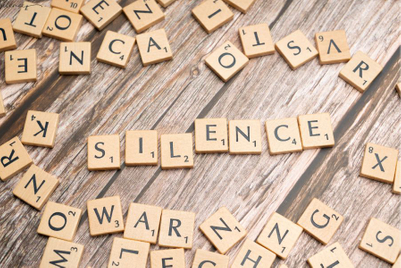A piece in the Wall Street Journal on 22 September 2019 left me 'nicked' for words.
The story mentions how some men are willingly shifting from the multi blade madness of recent times and reaching out for grandpa's old world 'safety razors' for their morning shave. Basically, going back to a fairly dangerous contraption which has no flexi ball or lubricating strip, just a metal guard separating blade from skin. And in a bid to reconnect with the past, they are happily shedding a few drops of blood or more. To avail a more romanticised experience, they are taking pleasure in seeing shaving water running off in the sink, pink with their blood.
And while that shift is happening there are two branding aspects that stand out as opportunities. First is the 'bring back the original opportunity'.
Imagine reintroducing the original Gillette Safety Razor in a premiumised version with an expensive handle and a whole range of pre-shave, while shaving and after shave unguents to provide men a chance to relive their grandfather's shaving experience. Not to mention, bringing back the good old shaving brush, as the article mentions purists are insisting that for a real shaving experience, one must use a shaving brush made from a badger's belly hair.
The second opportunity is 'the original but recast with modern technology'. Check what a brand called "Supply" is doing. They sell single blade razors in a multi-blade world. But their single edge razor is made from aerospace grade stainless steel. Instead of conventionally designed single blades, they have designed an injectable single blade option. Supply claims that these single blades are twice as thick as standard blades and provide a closer, irritation free shave. Imagine Gillette or Schick building on what Supply is already promoting by injecting modern technology into grandfather's shaving experience and making it cool, hip and safe.
This 'bring on the past as is', or in its modernised version, is best exemplified with the recent success of Saregama's Carvaan.
While essentially being just a hard disc of old songs, what makes Carvaan work is how they have created a form factor that the previous generation is most comfortable with -- the old world radio. Now a whole generation not only has ready access to the songs of their era but can also access them in the format they grew up with. Simply turn the knob and let the music of a long lost era play in a modern static free format.
From Hum Log to Yeh Jo Hai Zindagi to Wagle Ki Duniya there are also a whole host of serials that a whole generation may want to watch again. Imagine an extension of Carvaan wherein a tablet is converted into the format of old age televisions. Knobs, channels and of course antennas too. Where with the twist of a knob one can immerse oneself in the poetry of Gulzar and Naseeruddin Shah’s Mirza Ghalib, with another twist start solving mysteries with Pankaj Kapur as Karamchand and then twist the knob once again to follow the lives of Guru and Khopdi at their Nukkad.
This charm of the sixties and seventies can also be extended to revive consumer products. Fans of the series 'Billions' on Netflix will recall one particular episode where Bobby Axelrod summarises what is the issue with his favourite snack cake, which he used to relish as a child. It simply does not taste that good now due to changes in ingredients and changes in the recipe all made to optimise margins.
Many old people in India complain in the same way that their favourite biscuit dipped in chai does not taste the same as it used to in the seventies. One can understand inflation in the prices of ingredients at one end and the necessity of maintaining a certain price point beyond which volumes may dip at the other end resulting in ongoing changes to the original recipe. But, there is an opportunity to actually reintroduce the same recipe of the seventies at a much higher price point and possibly with the same packaging that was used at that time.
After all, not just the older generation but even the newer generation may not mind paying more for getting that buzz of relishing the original seventies recipe of their preferred biscuit dipped in piping hot tea and saying these are truly -- "Swad Bhare, Shakti Bhare".
Or walking into a super market and seeing Amjad Khan staring at them from their favourite biscuit packet saying - 'Gabbar Ki Asli Pasand'.
 (The author is a senior consumer marketing and financial services professional based in Vietnam who has lived and worked in India, Japan, Hong Kong, Singapore and Dubai. His book "Marketing Chronicles" is available on Amazon India, Flipkart and at key online/ physical book stores.)
(The author is a senior consumer marketing and financial services professional based in Vietnam who has lived and worked in India, Japan, Hong Kong, Singapore and Dubai. His book "Marketing Chronicles" is available on Amazon India, Flipkart and at key online/ physical book stores.)

 (The author is a senior consumer marketing and financial services professional based in Vietnam who has lived and worked in India, Japan, Hong Kong, Singapore and Dubai. His book "Marketing Chronicles" is available on Amazon India, Flipkart and at key online/ physical book stores.)
(The author is a senior consumer marketing and financial services professional based in Vietnam who has lived and worked in India, Japan, Hong Kong, Singapore and Dubai. His book "Marketing Chronicles" is available on Amazon India, Flipkart and at key online/ physical book stores.) 

.jpg&h=334&w=500&q=100&v=20250320&c=1)
.jpg&h=334&w=500&q=100&v=20250320&c=1)


.jpg&h=334&w=500&q=100&v=20250320&c=1)

.jpg&h=334&w=500&q=100&v=20250320&c=1)


.jpg&h=334&w=500&q=100&v=20250320&c=1)
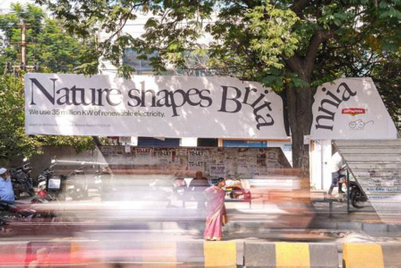
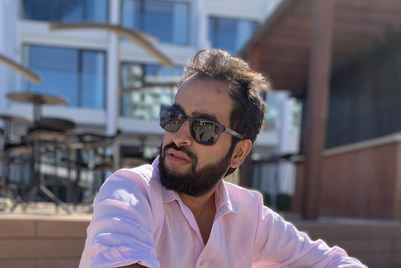
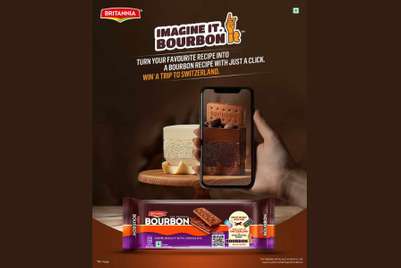
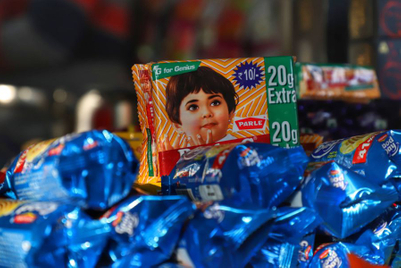
.jpg&h=268&w=401&q=100&v=20250320&c=1)

.jpg&h=268&w=401&q=100&v=20250320&c=1)
